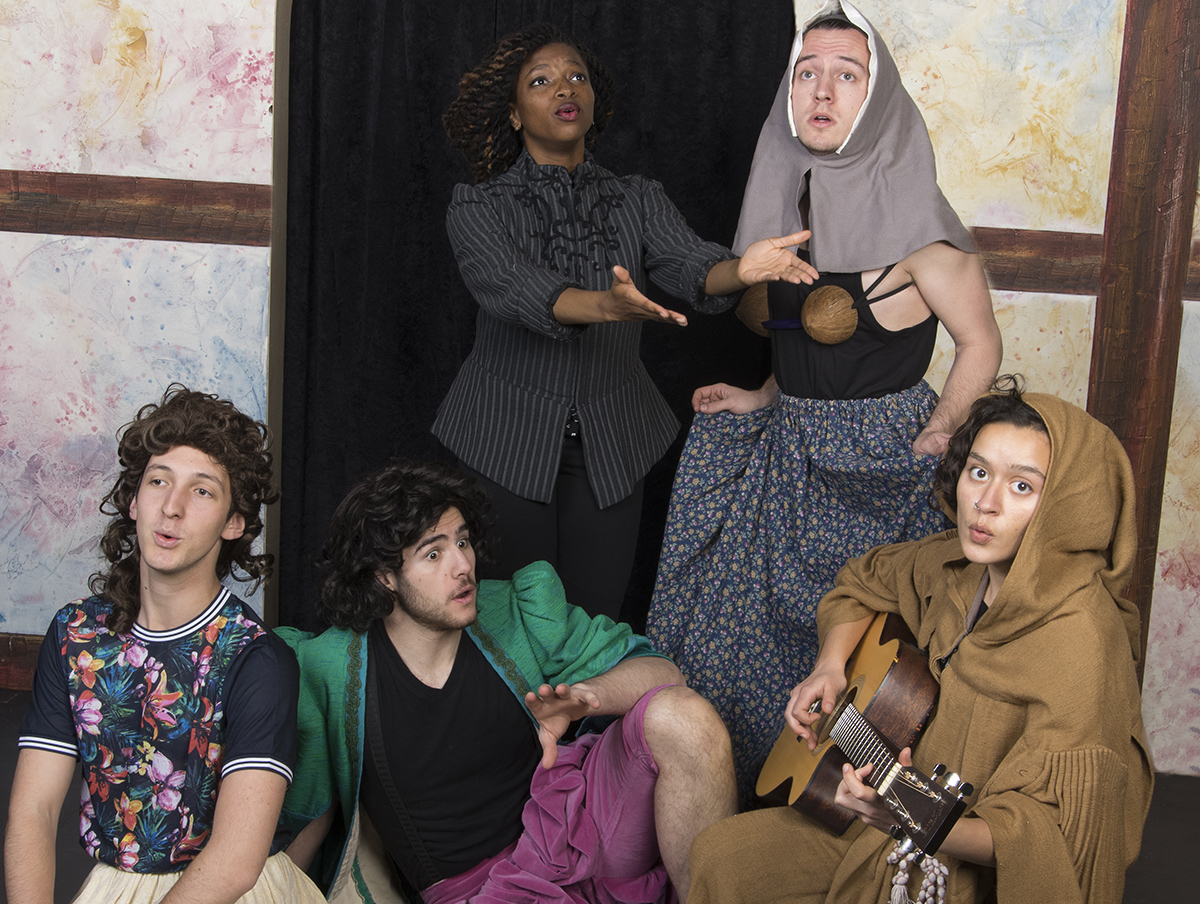Shakespeare mash-up promises laughs
By Matthew Morgan

Director Jeff Guyton can’t remember the first time he heard the saying but believes it’s the perfect way to describe his upcoming production, “The Complete Works of William Shakespeare (abridged) [revised]”: “If you love Shakespeare, you will love this play. If you hate Shakespeare, you will love this play.”
The play, presented by the Department of Performing and Media Arts (PMA), runs from Feb. 25 to March 5 in the Schwartz Center for the Performing Arts’ Class of ’56 Flexible Theatre. Tickets ($15 general, $8 for students, seniors and the Cornell community), are available at the box office and at schwartztickets.com.
As the name suggests, “The Complete Works of William Shakespeare (abridged) [revised]” is a theatrical whirlwind, cramming all 37 of Shakespeare’s plays into one 100-minute performance. The pacing is fun and frantic, with the cast of five student actors (Sam Morrison ’17, Jacob Kuhn ’18, Ezioma Asonye ’16, Julie Locker ’16 and Christian Kelly ’16) alternating between improvised bits, high-brow theater jokes, pop culture references including Miley Cyrus and “Downton Abbey,” and melodramatic acting.
“It’s going to be a lot of slapstick, a lot of surprise and audience interaction, character breaking, characters taking themselves too seriously,” Morrison says. “A lot of the show has nothing to do with Shakespeare.”
In “Complete Works,” the students play themselves playing actors who do Shakespeare poorly. Since the characters don’t have the refined ability to do Shakespeare, they do it their own way.
The result is a theatrical roast of sorts, lovingly dismantling the more ridiculous parts of Shakespeare’s work – the overly intense emotions, the recurring themes, everyone falling in love with each other.
Kuhn says the intensity and prestige of Shakespeare make it ripe for mocking. He remembers playing Hamlet in a production several years ago and finding some of the more emotional scenes difficult to get through without breaking character.
“I was screaming and crying and angry but also kind of laughing at myself on the inside because it was so ridiculously overdramatic, but it’s what you have to do,” Kuhn says. “This play gives all the Shakespeare lovers the opportunity to finally focus on those things we laugh at, and bring them to light.”
Since there is no fourth wall in “Complete Works,” the actors will routinely interact with the audience and include them in the jokes. “You have to have the audience interacting with you to make the show what you want it to be,” Kuhn says. “I have no doubt we’ll do it because everyone on the show is amazing.”
Rehearsals were an exercise in purposefully controlled chaos, according to Guyton, a visiting lecturer in PMA. Since each production of “Complete Works” takes on its own life, the actors used the time to brainstorm new angles on the material.
Guyton gave his actors creative carte blanche to take the script wherever they wanted. Also, with audience participation, the actors had to be ready to improvise.
“I won’t lie. I’m a little nervous because there’s so much freedom,” Kuhn says. “But the people I’m working with are never afraid to take chances and make the biggest choices. So, I’m excited to see where they go.”
Matthew Morgan is communications manager in the Department of Performing and Media Arts.
Media Contact
Get Cornell news delivered right to your inbox.
Subscribe